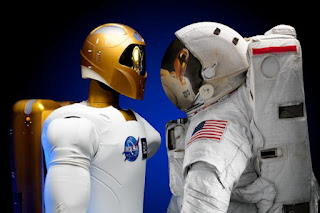A Journey from Failure to Success - 3
Part 3
"Don’t fear for facing
failure in the first attempt, because even the successful Maths starts with
zero only" ~ APJ Abdul Kalam
Dr. APJ
Abdul Kalam hailed from a family whose financial conditions
were quite poor. He supported his family by distributing newspapers
after his school hours to add to his father's income. He became a pioneer
in the field of Science and worked as an aerospace
scientist specializing in making rockets. He was fondly called
the ‘Missile Man’
for his contribution to the development of the missile
technology. At ISRO, his contribution to the India's first
space launch-vehicle program was commendable. He was the recipient
of prestigious awards like Padma Bhushan, Padma Vibhushan and Bharat
Ratna for his dedication, devotion and meritorious
contribution towards making a positive change in
our country and advancement in the field of technology.
He later became the ‘President of India’ and was affectionately
known as the ‘People’s President’.
In his childhood, paucity of monetary support and lack of
resources to pursue his studies did not stop him from
exploring. He could not spare time to study during the day after his
school hours as he was busy selling newspapers to passersby and
people on vehicle at the red lights in the scorching heat
of the Sun. He used to study during the night using kerosene
lamps. He could barely manage his studies, job and prayers. Even
though all of this was difficult for him but he never left upon
his favourite subjects Mathematics and Physics and ultimately decided
to take up aerospace engineering. His diligence,
inquisitiveness, interest in studies was commendable.
His contribution in the field of Aerospace Engineering led him to
work on India's Space Program and military missile
development projects.
As is a well-known saying “No one can get a bed full roses. Everyone will
face hardships and struggles”. The same happened with Kalam. In the
starting of his career, he faced many ups and downs like failure
of SLV3, rejected as a fighter pilot,
his scholarship while studying was taken away. All of this was
not easy for him. He was criticized for doing a bad job as
a scientist. But Kalam withstood all and
didn’t allow himself to be affected by criticism. His zest
to continue the hardwork along with his teammates led
to success soon. He was among a group of young
scientists who set up the ‘Thumba Equatorial Rocket Launching
Station’ and made their first attempt of launching a rocket on a ‘cycle’.
This was like the kick start of ISRO and many other
science institutions.
He said that - “ Whenever we face
failure, we should reiterate ourselves that the
resources for success were always there within us and we
should explore them and move on with our lives”.
He put his ‘heart
and soul’ at his job as the senior scientific assistant. He proved people
wrong and got success in SLV3, missiles like Prithvi, Agni,
Nag, Trishul which are now being used by the armed forces. Being so learned,
he
was honored doctorates from many universities. He was a well-known
writer and author of 15 books on various subjects ranging from
Nuclear Physics to 12 Spiritual Experiences.
His autobiography ‘The Wings of Fire’ comprised of his
life experiences and failures which gained world fame. It was first
published in English and now has been translated into 13 languages. Because
of how Kalam articulated all his personal experiences and life lessons in a
pleasant way, his book, The wings of fire is a pleasure to read. I myself have
read that twice and I was fascinated.
On the evening of July 27th, 2015 we lost a
humble soul who preached about self-confidence and determination. He
was a man of astute scientific knowledge. Kalam died while sharing his
jewels and knowledge with the whole world and will always be remembered
for his simplicity, inspiring words, loving nature and for making a big drastic
for humanity.

Comments
Post a Comment